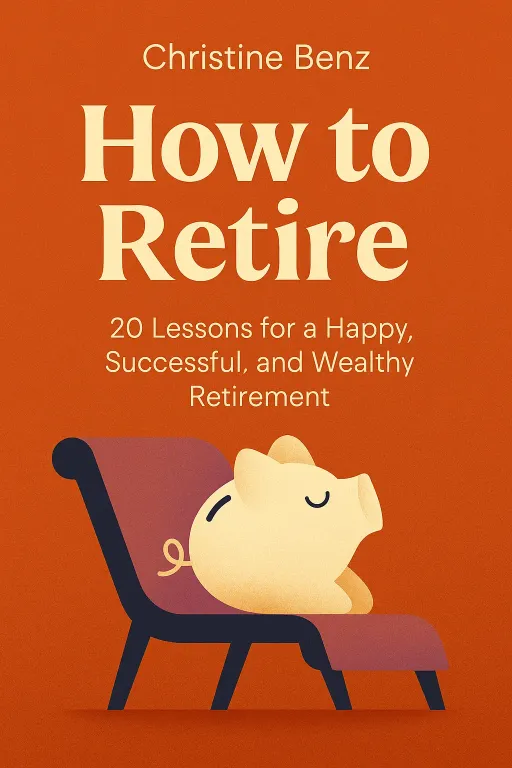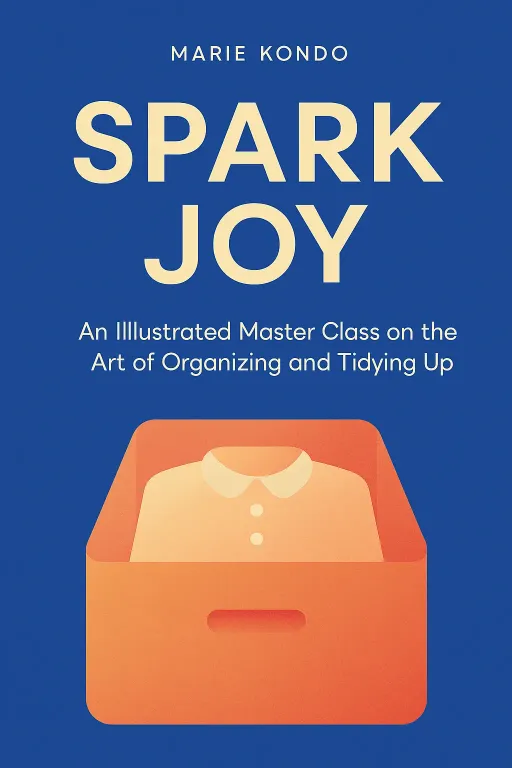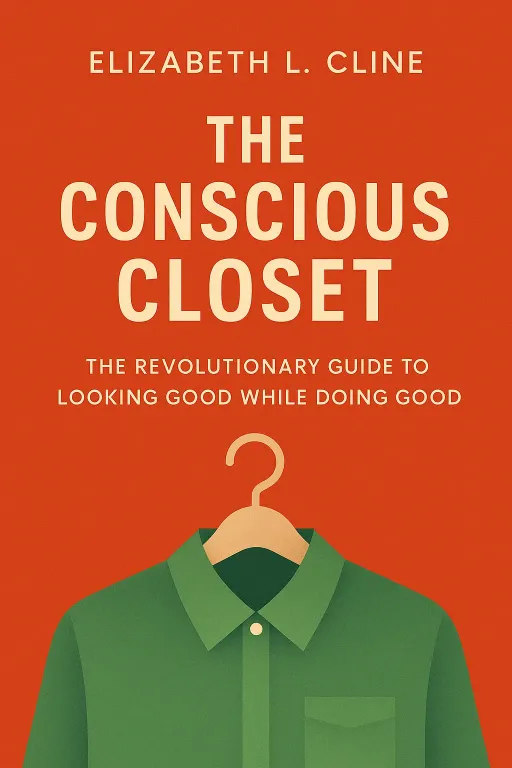
The Complete Eldercare Planner
11 minIntroduction
Narrator: Imagine receiving a frantic phone call. A loved one, who has always been fiercely independent, has had a fall, a stroke, or a sudden, frightening diagnosis. In that single moment, your world shifts. You are thrown into a new, unexpected role: caregiver. Suddenly, you're grappling with a storm of questions. How do you balance this with your job? Where will the money come from? Who can you possibly turn to for help? This disorienting and overwhelming experience is the reality for millions, a crisis that often arrives with no warning and no instruction manual.
It is precisely this chaos that author Joy Loverde addresses in her comprehensive guide, The Complete Eldercare Planner. The book serves as a roadmap through the unfamiliar and often turbulent territory of caregiving. It argues that while we may not choose this path, we can choose to navigate it with foresight, compassion, and a structured plan that brings peace of mind to one of life's most challenging journeys.
Eldercare is an Inevitable Calling, Not a Choice
Key Insight 1
Narrator: The book begins with a powerful and sobering truth, captured in the quote, "We don't choose eldercare. Eldercare chooses us." It reframes caregiving not as a task to be checked off a list, but as a profound, life-altering calling. It often arrives unexpectedly, transforming a person's life and offering unforeseen opportunities for personal growth and a new perspective on life and death.
Loverde broadens the definition of a caregiver beyond just 24/7, hands-on support. It includes anyone who feels an increased level of concern and attention for an older person in their life. The book acknowledges that this journey is a "labor of love," but one filled with unpredictable challenges. This is powerfully illustrated in situations where estranged parents, who were absent during their children's upbringing, reappear in their later years seeking care. This creates a complex emotional dilemma, forcing adult children to weigh feelings of resentment against a sense of obligation or compassion. By establishing this foundation, the book prepares the reader to view eldercare not as a problem to be solved, but as a deep human experience to be navigated with empathy and strength.
Proactive Planning is the Antidote to Crisis
Key Insight 2
Narrator: A central argument in The Complete Eldercare Planner is that most caregiving "emergencies" are, in fact, preventable. The chaos and stress that erupt during a health crisis are often the direct result of a failure to plan. The book tells the story of the Johnson family to drive this point home. John and Mary, in their late 70s, had never discussed their wishes with their daughter, Sarah. When John suffered a major stroke, Sarah was thrown into a vortex of impossible decisions. She had no idea what his medical preferences were because they had no advance directives or healthcare power of attorney. The family faced immense emotional and financial strain that could have been mitigated with early, open conversations.
Loverde emphasizes that effective planning rests on a foundation of what she calls "Communicaring." This means approaching these difficult conversations not as a parent dictating terms, but as a partner working toward a common goal. It requires listening more than speaking, understanding the elder's fear of losing independence, and focusing on what they can do, not what they can't. By initiating these dialogues about finances, housing, and health before a crisis hits, families can create a clear, mutually agreed-upon path forward, turning potential conflict into cooperation.
A Resilient Care System Requires a Team
Key Insight 3
Narrator: The book firmly states, "You cannot assist your elder alone; you will need help." Attempting to be a solo hero is the fastest path to burnout. The first step is recognizing when help is needed. Loverde provides a compelling story of a daughter, Sarah, visiting her mother, Eleanor. Sarah notices subtle but telling signs of decline: mail is piling up unopened, the checkbook is a mess, and the refrigerator has a foul odor. These are not just signs of untidiness; they are clues that Eleanor is struggling to manage her life.
Recognizing these signs is the catalyst for building a care team. This team has two parts. The formal network includes professionals like geriatric case managers, doctors, and financial advisors. The informal network consists of family, friends, and neighbors who can share responsibilities. Building this team requires clear communication and delegation. It also involves practical emergency preparedness. For instance, the "Forgotten Key Scenario" illustrates how a simple oversight—not having a spare key readily available to a neighbor—can turn a fall into a life-threatening emergency by delaying access for first responders. A resilient system means having people, plans, and practical tools in place before they are ever needed.
The Caregiver's Paradox Demands Self-Preservation
Key Insight 4
Narrator: Perhaps the most critical and counterintuitive message in the book is directed at the caregiver: you must be kind to yourself. Loverde highlights a silent health crisis, which is caregiver depression and burnout. The story of "The Overwhelmed Caregiver" paints a vivid picture of this reality. A woman named Sarah, juggling a full-time job, teenage children, and the care of her mother with Alzheimer's, tries to do it all herself. The result is exhaustion, resentment, and a breakdown at work.
Her story illustrates the book's core principle of self-care. It is not selfish; it is essential for survival. Loverde urges caregivers to distinguish between tasks that are "nice to do" and those they "have to do," and to ruthlessly delegate or let go of the rest. She quotes, "Sometimes love is best served when we do not place ourselves in a position of resentment." This means seeking help from support groups, accepting assistance from family, and leveraging workplace programs. Prioritizing one's own health, sleep, and emotional well-being is not an abdication of duty but the only way to provide sustainable, loving care over the long term.
Navigating the Financial and Legal Minefields
Key Insight 5
Narrator: Loverde bluntly states, "There's nothing like money to break up a family." The financial and legal aspects of eldercare are fraught with emotion and complexity. The book warns that mindlessly providing financial support can jeopardize the caregiver's own retirement and financial stability. It's crucial to understand the significant limitations of programs like Medicare, which does not cover most long-term custodial care.
Financial vulnerability is another key theme, illustrated by the story of James, a lonely widower who falls prey to the allure of casino perks. What starts as a way to combat boredom spirals into a gambling addiction and significant debt, devastating his finances. This highlights the need for vigilance. On the legal front, the book stresses that estate planning is for everyone, not just the wealthy. Failing to have documents like a will and, crucially, powers of attorney for property and healthcare, can lead to costly court interventions and ensure that a person's wishes are ignored during a period of incapacity. Proactive legal and financial planning protects both the elder and the caregiver from future hardship.
The Goal is Quality of Life, Not Just Survival
Key Insight 6
Narrator: In the final stages of the journey, the focus must shift from mere safety and survival to ensuring a high quality of life. The book challenges the notion that age is a limit to purpose, citing historical figures like Benjamin Franklin and Pablo Picasso who were highly productive in their later years. However, roadblocks like chronic pain and depression must be addressed first.
A particularly poignant challenge is the loss of mobility. The story of Eleanor Vance, an 82-year-old woman in a rural town, shows how devastating the loss of a driver's license can be. When her failing vision forces her to stop driving, her world shrinks, leading to profound isolation and loneliness. This underscores the book's call to think creatively about transportation, housing, and social engagement. The ultimate goal is to help elders stay connected, pursue interests, and feel a sense of purpose, redefining seniorhood as a time of potential fulfillment rather than inevitable decline.
Conclusion
Narrator: Ultimately, The Complete Eldercare Planner delivers one overarching message: proactive, organized, and compassionate planning is the key to navigating the eldercare journey successfully. It transforms the role of a caregiver from that of a frantic emergency responder to a thoughtful and effective leader. The book systematically dismantles the taboos around difficult conversations about money, health, and death, arguing that silence is far more damaging than open dialogue.
Its most challenging and vital lesson is for the caregiver to place their own well-being at the center of their strategy. It asks you to embrace a paradox: that to be the best possible caregiver for someone else, you must first be a fierce advocate for yourself. The journey is a labor of love, but as Joy Loverde makes clear, that love must extend to yourself, ensuring you have the strength to see it through with grace and resilience.









